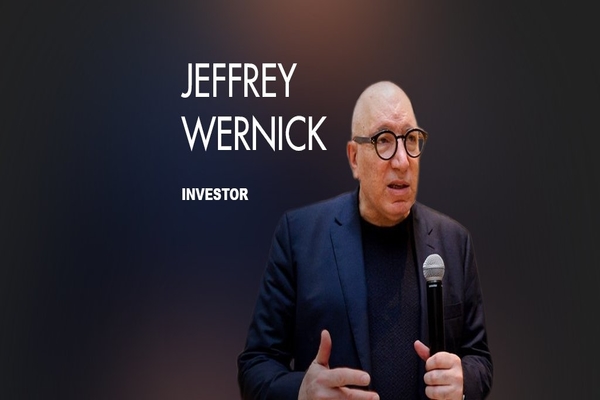
Image Courtesy: Chaintalk.tv
Digital and virtual conferences are now booming in a COVID-19 stricken world, and for crypto enthusiasts stuck at home, plenty of online events have been lined up this month for insightful discussions on industry updates and more. Crypto Asia Summit, one of the largest crypto summits of 2020, just began its five-day conference on Monday, 18 May.
On the first day of the event, Jeffrey Wernick, a successful entrepreneur and a seasoned private investor in various asset classes, shared his ideas about current financial markets as well as the potential of bitcoin and blockchain technology against the backdrop of the potential economic downturn.
Wernick argued that capital is being allocated poorly because the value of capital structure is being priced not by the marketplace but by intervention of central banks and governments to a great extent. The pricing mechanism is no longer a reliable indicator.
Gold or Bitcoin?
Under financial fragility circumstances, Wernick predicted that in 10 years or sooner, the dollar will not be the dominant form of payment as technology is attempting to replace its dominance. The de-dollarization of payments is about to happen. As we go back to the hard-money regime, there are two choices at this point in time: gold and Bitcoin.
Until Bitcoin came around, gold was the best form of money as well as store of value. However, since governments are the majority holders of gold, their actions can significantly impact the price and supply of gold, especially as centralized authorities can regulate access to gold mining. Bitcoin is different.
“Bitcoin is a better form of money than gold”, said Wernick.

When it comes to Bitcoin, Wernick advised traders not to take a short term perspective as he believes that investing is a better strategy than trading, unless you are a market maker.
“I have never been an advocate for Bitcoin as a payment system because I consider Bitcoin as a sound money. Sound money is what you hold, shitty money is what you spend”.
To strengthen his arguments, Wernick referred to a few studies using quantitative asset allocation models stating that if investors do not allocate some percentages of their portfolios into Bitcoin, they would basically underperform what they can do with Bitcoin.
What about Blockchain?
In terms of the blockchain world, Wernick showed some disappointment regarding the way projects only focus on issuing cryptocurrencies, rather than figure out how to develop an ecosystem facilitating decentralization nature of this technology. He argued that many coins like EOS or Telegram’s token misrepresent the utility of the token. They just promote the value of the token, not the utility of the projects.
Wernick is an outspoken advocate and early investor in Bitcoin, and is well known as an early investor in Airbnb and Uber.
You may also want to read: Vitalik Buterin: The Future of Ethereum in the Current Political Climate and Risk in DeFi


